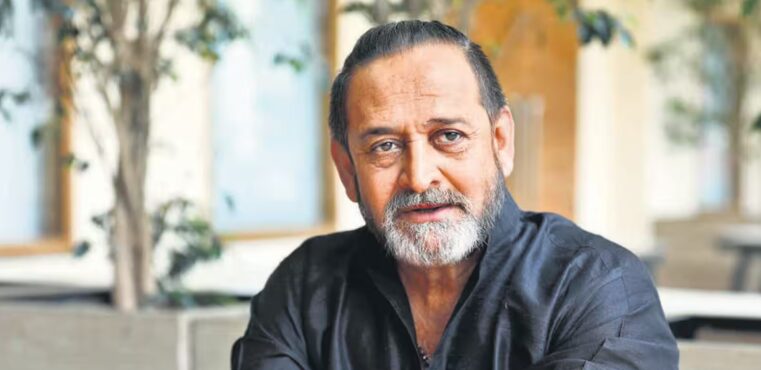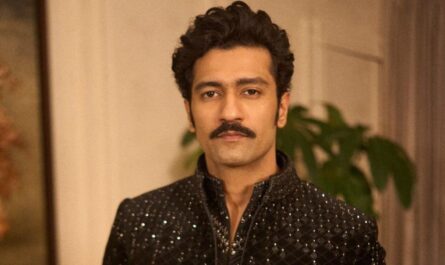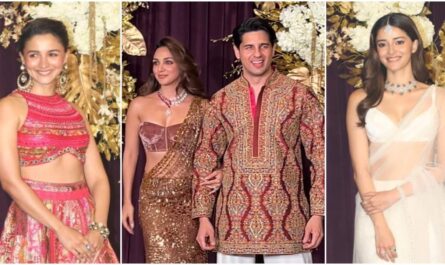Ever since the two first crossed paths in Mumbai’s film circles of the late 1990s, actor‑director Mahesh Manjrekar and superstar Salman Khan have nurtured a bond that has grown steadily from a private lifeline into a public example of steadfast loyalty in an industry often accused of transactional ties. Manjrekar’s recent remark—“One man who would really never ever look like a Devmanus, who I sometimes take for granted, is Salman Khan … he is always there for you”—has reopened discussion about how their relationship has survived two decades of box‑office swings, personal crises, and generational change (India Today interview, April 2025). The story behind that tribute is neither a single grand gesture nor a PR façade; it is an evolving tapestry of phone calls at 2 a.m., creative risk‑taking, family milestones, and brutally honest feedback exchanged far from the flash of paparazzi bulbs. In the following essay—spanning more than fifteen hundred words—we explore the roots of this friendship, its defining moments, its impact on both men’s careers, and what it tells us about the elusive currency of respect in Bollywood.
The First Lifeline: A Phone Call That Changed Everything
Before Wanted or Dabangg catapulted them into shared fame, Mahesh Manjrekar found himself mired in a personal crisis he has never fully detailed. Late one night his landline rang, and Salman Khan’s voice offered a simple assurance: “Don’t worry, everything will be fine.” Manjrekar later compared the gesture to the Marathi proverb “Bhiu nako, mi tujhya pathishi aahe”—“Don’t be afraid, I’m right behind you” (Indian Express, April 2025). The kindness impressed him because they had never worked together; Khan’s concern was unprompted by contracts or co‑billing. That call set a precedent: from then on, whenever Manjrekar faced turbulence—a stalled script, a family setback, or, years later, his bout with bladder cancer—Khan checked in. In an industry where people measure friendship in premieres attended and selfies posted, a quiet phone call carried disproportionate weight.
Early Creative Crossroads: From Cameos to Catalysts
Their first major collaboration arrived in 2010 with Dabangg, when Manjrekar portrayed the slippery politician Harialal opposite Khan’s now‑iconic Chulbul Pandey. The film’s runaway success proved mutually beneficial: it relaunched Khan’s mass‑action phase and introduced Manjrekar to multiplex audiences beyond Marathi cinema (Box‑office trade reports, 2010). Over the following decade, the duo wove a pattern of recurring cameos—Ready, Bodyguard, and Jai Ho—each project reinforcing a professional shorthand. Set insiders often remarked that Khan valued Manjrekar’s “ director’s eye” even when he was only a supporting actor; Manjrekar, in turn, felt free to critique blocking or dialogue without fear of bruising the star’s ego.
That trust culminated in Antim: The Final Truth (2021), where roles reversed: Manjrekar directed while Khan acted and co‑produced. Initially, Manjrekar resisted taking a cameo in his own film, citing health fatigue after cancer surgery, but Khan persuaded him, arguing audiences enjoyed their on‑screen chemistry (Economic Times interview, 2021). The result was a film that critics praised for grounded storytelling, unusual for the superstar’s typically larger‑than‑life persona. The collaboration demonstrated how an evolving friendship can drive creative reinvention rather than complacency.
Family Ties: Launching Saiee Manjrekar and Extending the Circle
Perhaps the most poignant chapter came when Khan championed the launch of Saiee Manjrekar, Mahesh’s younger daughter, in Dabangg 3 (2019). While nepotism charges swirl freely in Bollywood, the circumstances here were different: Saiee’s casting did not arrive via a cold business calculation but through years of Khan witnessing her interest in acting during set visits as a child. Manjrekar told the Times of India in 2019 that he felt “proud and emotional” watching his daughter share the frame with the man who once comforted him as a near‑stranger. Khan’s mentorship extended beyond the shoot—script readings, media‑training tips, even advice on handling social‑media scrutiny. For Manjrekar senior, the gesture symbolized a friendship transcending professional reciprocity, venturing into near‑familial territory.
The “Devmanus” Philosophy: Loyalty Over Optics
When Mahesh Manjrekar recently called Salman a “Devmanus”—literally “god‑man” in Marathi—he admitted the label seems ironic for an actor famed for swagger rather than saintliness (India Today Digital, April 2025). Yet the term in rural Maharashtra often describes someone who offers unwavering assistance, no matter the optics. In the same interview, Manjrekar noted that Khan’s generosity is rarely publicized; he chooses discreet interventions: hospital bill payments for junior artistes, last‑minute cameo appearances to salvage delayed films, or quiet legal aid for writers stuck in contractual traps. By describing these qualities, Manjrekar implicitly critiques a culture where philanthropy is Instagram‑live fodder. The devotion is mutual: Khan publicly refers to Manjrekar as someone who “tells me when I’m wrong,” a rarity in superstar entourages known for sycophancy.
Support Amid Health Crisis: Cancer, Chemotherapy, and Unbroken Shoots
In late 2021, Mahesh Manjrekar underwent surgery for bladder cancer, announcing two months later that he was cancer‑free (Economic Times, November 2021). Production on Antim overlapped his treatments, but Khan reportedly reorganized shooting schedules to accommodate chemotherapy fatigue. Co‑actors recounted how the producer‑star would cut scenes early if Manjrekar’s energy dipped and insisted on a standby medical team on set. For Manjrekar the gesture echoed that first phone call—a signal that the friendship’s foundation was concern, not convenience. Such backstage solidarity rarely headlines entertainment pages, yet it encapsulates why Manjrekar’s praise feels authentic rather than promotional.
A Bond in an Industry of Transactional Alliances
Bollywood friendships often dissolve when projects underperform or when stardom trajectories diverge. Observers note that Khan‑Manjrekar collaborations persisted despite mixed box‑office results; Jai Ho under‑performed relative to expectations, but neither side retreated. Media historians cite only a handful of similarly durable alliances—Amitabh Bachchan and director Ramesh Sippy, Shah Rukh Khan and choreographer Farah Khan—but those carried major commercial incentives. In contrast, Manjrekar occasionally disappears into Marathi cinema for years, yet Khan’s support remains constant, suggesting personal loyalty outranks ROI considerations.
Mutual Creative Growth: Honesty as Catalyst
During script workshops, Manjrekar is known for bluntly questioning plot holes, even if the producer table features Khan’s entourage. Conversely, Khan pushes Manjrekar to adopt mainstream pacing without sacrificing rustic authenticity. Sources close to their story‑sessions for a forthcoming violent love story note heated debates over character arcs, followed by laughter and kebab dinners. Industry veterans argue that such candour is possible only when egos trust each other’s intent. The friendship thus doubles as a think‑tank, yielding projects that neither might conceive alone: Khan tempers Manjrekar’s gritty instincts with blockbuster appeal, while Manjrekar urges Khan toward nuanced performances critics rarely expect from him.
Future Collaborations: From Dark Comedy to Inclusive Casting
Rumour mills buzz about two scripts on their shared slate. The first is a gritty romance with eighty‑five percent of scenes carried by a visually impaired cast—an inclusion initiative close to Manjrekar’s heart after directing Natsamrat, a Marathi film featuring an aging theatre actor confronting mortality. The second, a dark comedy set in Goa’s underbelly, would see Khan ditching his heroic image for a morally ambiguous fixer. Regardless of which materializes, trade analysts predict Khan’s star power will secure funding, while Manjrekar’s directorial edge will lend credibility. Their willingness to pivot into riskier genres is itself testament to mutual confidence.
Lessons for a Competitive Industry
What broader insights does this friendship offer to aspiring artists or corporate collaborators?
- Private Loyalty, Public Economy – Grand gestures need not be Instagram‑broadcast; timely privacy can strengthen bonds.
- Honest Feedback Loops – Respect thrives when each party trusts criticism comes from care, not competition.
- Mentorship Multiplier – Extending support to a friend’s family or protégés deepens relational roots.
- Reciprocity without Scorekeeping – Maintaining generosity absent immediate return cultivates long‑term goodwill.
In a field where success often recalibrates social circles, their sustained camaraderie illustrates that relationships anchored in authenticity outlast cycles of hype.
Conclusion: Two Decades, One Constant Presence
From an unsolicited phone call to the launch of a daughter’s career, from cancer‑ward messages to film‑set debates, Mahesh Manjrekar and Salman Khan’s alliance has weathered personal storms and industry headwinds. Manjrekar’s simple refrain—“He is always there for you”—encapsulates not just friendship but a philosophy of presence. In an entertainment ecosystem where loyalty can be as fleeting as Friday box‑office numbers, their story underscores a deeper truth: creative brilliance may draw audiences, but human constancy draws hearts. As new scripts gestate and the cinematic landscape evolves, one can safely predict that Khan’s late‑night check‑ins and Manjrekar’s candid counsel will persist, serving as quiet but powerful reminders that in the end, the most enduring blockbuster is a bond built on unconditional support.
Beyond the silver‑screen narratives and headline moments, their friendship ultimately stands as a quiet manual for the next generation of filmmakers and actors who will inherit Bollywood’s frenetic stage: nurture relationships that outlive a single Friday, protect each other’s vulnerabilities as fiercely as you celebrate each other’s triumphs, and remember that every success story is on loan to circumstance but loyalty is carved in permanence.
Looking ahead, the greatest testament to their bond may be the ripple effect it sparks in those watching from the sidelines—assistant directors who see that stardom need not eclipse humility, new actors who learn that candor can coexist with admiration, and seasoned producers reminded that long‑term trust yields bolder, richer cinema than any fleeting hype campaign ever could; in this way, the quiet constancy between Mahesh Manjrekar and Salman Khan transcends personal friendship, evolving into an unwritten charter for an industry still searching for models of integrity amid its glittering, ever‑shifting landscape.



